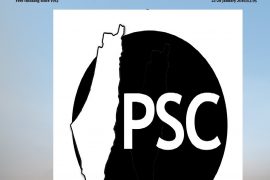In February, following our communication with Guardian editors, an article focusing on a row between Israel and church leaders was corrected. The article originally claimed that proposed Israeli legislation (currently on hold) would allow the state to confiscate church land in Jerusalem, when the bill actually targeted land which the church had already been sold to private (Jewish) developers.
Here’s the addendum beneath the Feb. 25th Guardian article:
This article was amended on 26 February 2018 to clarify that the proposal relates to land sold by the church, and to correct a date: the church has not closed for political reasons since 1990, not 1900 as originally stated.
However, in an article published yesterday at the Guardian, by former Jerusalem correspondent Harriet Sherwood, we noticed the same error. The tendentious piece (Christians in Jerusalem under threat from settlers’), which again promotes the false narrative that Christians in the holy city face institutional discrimination, repeats this false claim regarding the bill in two sentences.
First error:
The churches say they are facing onslaught on three fronts: a war of attrition waged by hardline settlers; unprecedented tax demands by Jerusalem city council; and a proposal to allow the expropriation of church land put up for sale.
The closure was lifted only after the intervention of Benjamin Netanyahu, the Israeli prime minister, who set up a committee to look at the issue of church taxes. He also temporarily halted the progress of a proposed law to expropriate church lands that could be sold to private developers.
The error is important because it serves to support the broader implicit accusation of state sanctioned discrimination against the church.
We again contacted editors who immediately upheld our complaint and amended the sentences to make clear that the bill would allow for state confiscation (with compensation) of land sold by the church but currently owned by private developers.






